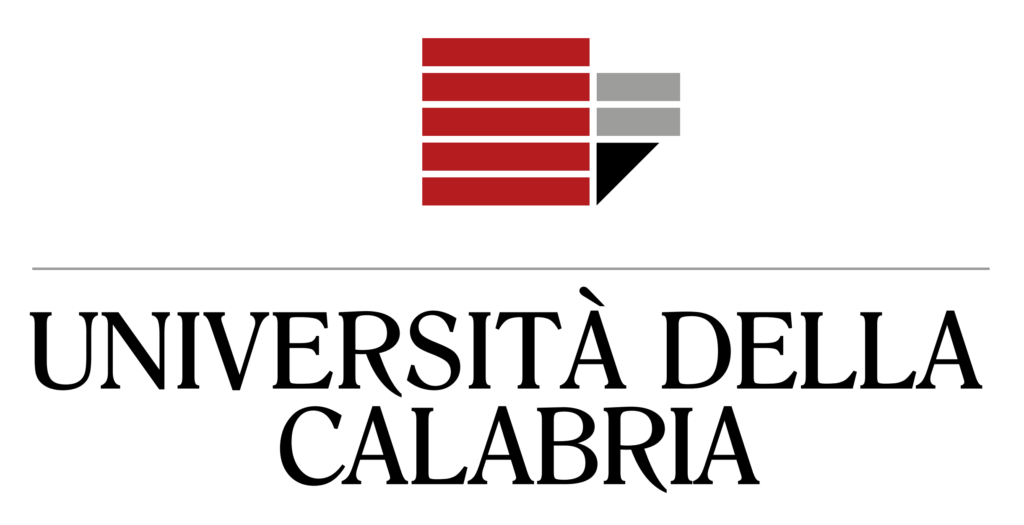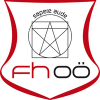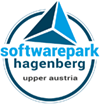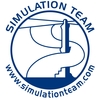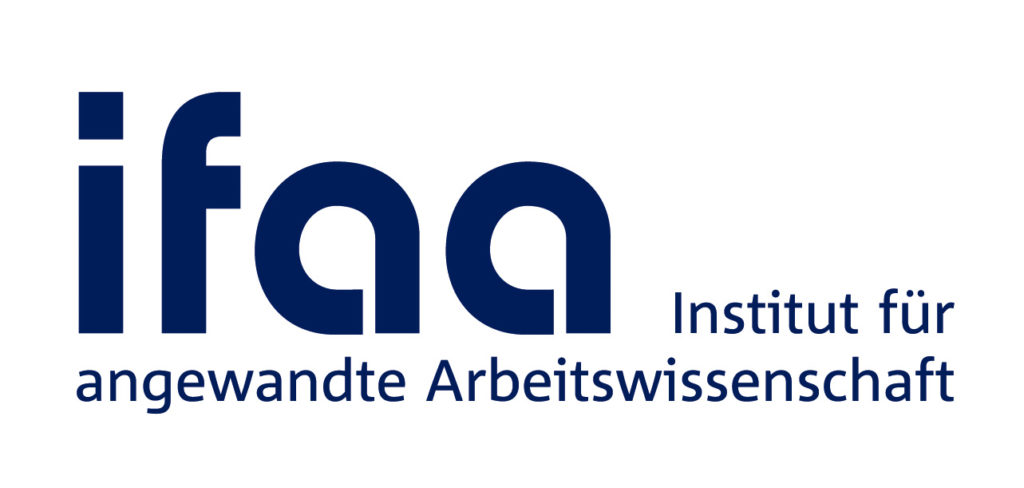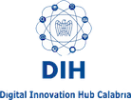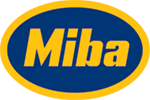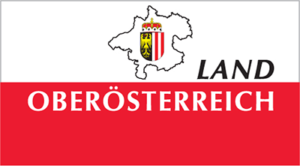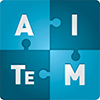Welcome to ISM 2020
we’re in the midst of a significant transformation regarding the way we produce products or deliver services thanks to the intensive digitization of manufacturing and connected processes. This revolution will increase productivity, shift economics, foster industrial growth and modify the profile of the workforce – ultimately changing the competitiveness of companies and regions.
The 2020 International Conference on Industry 4.0 and Smart Manufacturing (ISM) represents a new platform for knowledge exchange, the review and discussion of theoretical advances, research results, and industrial experiences, among scientists, researchers, decision makers, practitioners and students dealing with the topics under the umbrella of Industry 4.0 and Smart Manufacturing.
Therefore, we would like to kindly invite you to take active part in this conference and in the co-located events that will be held on Microsoft Teams next November 23-25, 2020 and explore with us the latest news, views and developments in the exciting world of Industry 4.0 and Smart Manufacturing.
Sincerely,
ISM 2020 Organization Committee
Topics & Tracks
Authors are invited to submit a regular or short paper on the following topics. Nevertheless, papers dealing with other Industry 4.0 and Smart Manufacturing topics are also welcome.
TOPICS
- Additive Manufacturing
- AI & Machine Learning in Industry
- Autonomous production
- Big data Analytics
- Blockchain
- Cloud Computing
- Computational Intelligence
- Computer-Integrated Manufacturing
- Cyber Physical Systems
- Cyber security
- Explainable and Interpretable AI
- Digital Twin
- Horizontal/Vertical Integration
- Human and Social Factor
- Human-Machine Interaction
- Industrial Internet of Things
- Logistics 4.0
- Predictive Maintenance
- Prescriptive Analytics
- Robotics
- Occupational Health & Safety 4.0
- Simulation
- Smart Operators
- Sustainable Production
- System integration
- VR/AR Applications
Tracks
Co-Chairs: (a)Fei Tao, (b)Qinglin Qi, (c)Antonio Padovano
Affiliation: (a)(b)Beihang University (China), (c)University of Calabria (Italy)
Track Description: With the rapid development of the I4.0 enabling technologies (Internet of Things, Cloud Computing, Big Data Analytics, and Artificial Intelligence, the Smart Manufacturing era has arrived. New trends and challenges are being traced thanks to the cyber-physical fusion of production technologies and software tools heading towards smarter, reliable and efficient manufacturing systems. In this context, the Digital Twin is defined as a high-fidelity digital mirror model of manufacturing resources that – combined with new technologies – allows to better accomplish complex tasks. This track collects review papers and application papers examining the background, latest research, and application models for digital twin technology in manufacturing, and aims at showing how the digital twin can be central to a smart manufacturing process. Topics of interest include, but are not limited to:
- Digital Twin Applications
- Digital Twin Driven Prognostics and Health Management
- Cyber-Physical Fusion in Digital Twin Shop Floor
- Digital Twin and Cloud, Fog, Edge Computing
- Digital Twin and Big Data
- Digital Twin and Virtual/Augmented/Mixed Reality
- IoT in Digital Twin-Based Cyber-Physical Systems
- Service-oriented Smart Manufacturing
- Manufacturing Service Management and Optimization
- Digital Twin Driven Product Design/Manufacturing/Service
Please be sure to select “Digital Twin-Driven Smart Manufacturing” as main topic during the submission.
Co-Chairs: (a)Giuseppina Ambrogio, (b)Luigino Filice
Affiliation: (a)(b)DIMEG, University of Calabria (Italy)
Track Description: Evolving industry needs and shorter product life cycle demand for new methods and services from production technologies and facilities. Manufacturing try to innovate themselves with a synergic use of creativity and technologies. Concepts of intelligent control of manufacturing system, advanced manufacturing, hybrid manufacturing and sustainability are widely diffused and have changed the way to design the manufacturing processes. These new paradigms represent the way for making industry more competitive. According to these new approaches, papers based on the application of such methods as welcome.
Sub-topics:- Advanced manufacturing,
- Hybrid manufacturing,
- Sustainable manufacturing,
- Intelligent control system,
- Open innovation in manufacturing,
- Application of I4.0 paradigm,
- Super Smart Society.
Please be sure to select “Manufacturing of the future” as main topic during the submission.
Chair: Florian Sobieczky
Affiliation: Software Competence Center Hagenberg (SCCH) (Austria)
Track Description: Explainable artificial intelligence has emerged as a key subject for all fields in which the increase in accuracy of high performing predictive machine learning tools (such as deep learning) is compromised by a lack of the performance’s interpretability. While due to legal implications the hype of XAI has conquered mobile communication technology, medical research, and autonomous driving, it is now also reached operations research. There exists, particularly in the manufacturing industry, a very high demand for explanations of the machine learning predictions concerning waste, mal-performance of machinery, and need for maintenance, as they can be used in a more strategic way as apposed to only on the process control level. If the (human) operators are learning from the black-box –instead of merely receiving corrections– they can remove the causes for the diagnosed errors. This means using artificial intelligence in an effective, sustainable way. The session ‘Explainable Artificial Intelligence in Industry’ focuses on insight into the methods and procedures illuminating the causes for machine learning algorithms’ decisions. Scope:
- AI and interpretable machine learning models in manufacturing
- Criteria for explainability (Interpretability, trustworthiness, transparency, faithfulness, stability, counter-factual)
- Local surrogate models: Linearity, Fidelity, Stability
- Model-agnosticity
- Probabilistic Methods: Partial dependence plots, individual conditional expectation, accumulated local effects plots
- Game Theoretic Methods: Shapley values
- Robustness of Interpretability
- Salience maps, interpretability in vision
- Human in the loop, Interpretability and Usability
Please be sure to select “Explainable Artificial Intelligence in Industry” as main topic during the submission.
Chair: Michele Fiorentino
Affiliation: Polytechnic University of Bari (Italy)
Track Description: Virtual, Mixed and Augmented Reality technologies (called also extended reality or XR) are evolving at very fast pace in terms of display quality and ergonomics, ease of use, interaction design and software tools and algorithms. XR applications will be ubiquitous, and they will deliver benefits in many fields, like maintenance, training, marketing, tourism, medicine and many others to come. However, there are still many research challenges to be addressed, like the lack of well established guidelines, human factors, usability, cybersickness, and social and cognitive aspects. This Special Track is intended to report on latest innovations and applications of Virtual, Mixed and Augmented Reality in the contex of Industry 4.0. Both practical and theoretical papers are welcome, as well as case studies and innovative multidisciplinary applications. Topics of interest include, but are not limited to:
- Innovative Virtual, Mixed and Augmented Reality Applications,
- Case studies and user experience reports,
- AR\VR design guidelines and implementation of future standards,
- Human computer interface design, solutions and challenges,
- Performance comparisons and implications of traditional processes versus VR\AR counterparts,
- Innovative AR\VR devices, approaches and algorithms,
- Cybersickness and ergonomics in AR\VR.
Please be sure to select “Extended Reality for Industry 4.0” as main topic during the submission.
Co-Chairs: (a)Fabio De Felice, (b)Antonella Petrillo
Affiliation: (a)University of Cassino and Southern Lazio (Italy), (b)University of Napoli “Parthenope” (Italy)
Track Description: The increase in global competitiveness challenges the manufacturing market to integrate design, manufacturing, and product in order to improve quality and process. In today’s market, even large companies need flexibility. Thus, in recent years, the focus on smart manufacturing systems is pushing companies toward a new variety of highly specific technical solutions. These solutions are characterized by an integrated approach to manufacturing termed “digital manufacturing”. In fact, digital manufacturing systems often incorporate optimization capabilities to reduce time, cost, and improve the efficiency of most processes. Despite the recognition of importance for digital manufacturing, most organizations feel they lack the necessary capabilities. The digital revolution is now our “present” is not the future. There are many different tooling processes that digital manufacturing utilizes such as artificial intelligence, automation and robotics, additive technology, and human-machine interaction, IoT, etc. These tools are unleashing innovations that will change the nature of manufacturing itself. Industry and academic leaders agree that digital manufacturing technologies will transform every link in the manufacturing value chain, from research and development, supply chain, and factory operations to marketing, sales, and service. This transformation is known as fourth industrial revolution, also referred to as Industry 4.0 but the real new trend refers to Industry 5.0, the future, already penetrating trend, of change processes directing towards closer cooperation between man and machine, and systematic prevention of waste and wasting including industrial upcycling. The aim of the track session is to host a selection of papers from researchers, academics, as well as practitioners providing significant insights in the context of Industry 4.0 towards Industry 5.0 to solve complex problems in the field of manufacturing planning, management, and control. Reference topics include, but are not limited to:
- Smart Manufacturing: Industry 4.0 towards Industry 5.0 (new business strategies, models)
- Enables Technologies: 3D, Machine Learning, Artificial intelligence, Big Data, IoT, etc
- Semantic data models for sensor data representation and integration for Smart factory domains
- Complex engineered systems: Risk Assessment, Maintenance, Reliability and Safety Engineering in the era of digital transformation
- Business models for sustainable manufacturing systems: Blue Economy, Circular Economy, Life Cycle Management
- IT tools and Simulation production systems
- Case studies in the design and deployment of digital manufacturing paradigms
- Manufacturing data analysis and diagnostics
- New human machine interface and communication technologies
- Cyberphysical systems
- Automation systems
Please be sure to select “Digital Manufacturing: towards Industry 5.0 – The future is already here” as main topic during the submission.
Co-Chairs: (a)Eleonora Bottani, (b)Barbara Bigliardi
Affiliation: University of Parma (Italy)
Track Description: In recent years, complexity and requirements in the manufacturing industry have gradually increased. Among others, factors like demand for highly individualized products, growing international competition, and shortened product life cycles challenge the survival of companies. At the same time, the technological progress characterizing the last years has opened up a range of new business potentials and opportunities. Concepts like digitalization, internet of things and cyber-physical systems are gaining momentum not only in the manufacturing context but also in other business environments. In 2011, Germany launched the so-called “Industrie 4.0” initiative as part of its technological strategy, presenting the idea of a digitally integrated industry. Industry 4.0 encompasses numerous technologies and associated terms, such as Cyber Physical Systems (CPS), Radio Frequency Identification (RFID), Enterprise Resource Planning (ERP), Internet of Things (IoT), cloud-based manufacturing, and social product development. The term Industry 4.0 has become a key concept in many contexts, ranging from the academic one to modern manufacturing, but still, there are a lot of misinterpretations about its meaning. In particular, as stressed by various scholars , the exponential growth of digital technologies has caused significant improvements in many business processes, playing a significant role also in the supply chain management (SCM). The introduction of Industry 4.0 into manufacturing has many impacts on the whole supply chain. Collaboration between suppliers, manufacturers and customers is crucial to increase the transparency of all the steps from when the order is dispatched until the end-of-life of the product. Furthermore, due to the introduction of digitalization and automation of processes, the whole supply chain structure changes. However, digitization has also lead to disruptive changes that affect significantly supply chains and will continue triggering changes in the future. In order to understand the opportunities and possibly threats from the introduction of these new technologies, it is therefore important to analyze the impact of Industry 4.0 on the supply chain as a whole, highlighting the challenges, risks and opportunities in SCM as a consequence of digitization, as well as how Industry 4.0 impact on SCM and viceversa. Based on these premises, the aim of this track session is to host a selection of papers from researchers, academics, as well as practitioners providing significant insights in the context of SCM 4.0. Topics may address, but are not limited to, the following key areas:
- Advanced tracking and tracing technologies and applications in the supply chain context
- Analysis of diffusion and digital transformation in supply chains
- Concepts of data security for supply chain
- Effects of Digitization & automation on efficiency, effectiveness, flexibility in supply chains
- Effects of product and service virtualization on supply chain management
- Impacts of autonomous transportation technologies on supply chains
- Impacts of digitization on SC decision making, leadership practices, management principles
- Innovative smart services for supply chain management
- Innovative supply chain models based on big data analytics
- Internet of things (IoT) and its impact on supply chain management
- Maturity models for digital transformation of supply chain management
Please be sure to select “The digitalization of supply chain: challenges and opportunities from a managerial perspective” as main topic during the submission.
Chair: (a)Antonio Padovano, (b)David Romero
Affiliation: (a)DIMEG, University of Calabria (Italy), (b)Tecnológico de Monterrey (Mexico)
Track Description: While the Industry 4.0 is idolizing the potential of an artificial intelligence embedded into “things”, it is neglecting the role of the human component which is still indispensable in different manufacturing activities. The 4th Industrial Revolution is inevitably changing not only what the human operators do and how they do it, but also who they are. After generations of operators that keep pace with the first three industrial revolutions, the Operator 4.0 (O4.0) came up as a new concept in the Industry 4.0 framework. Since debate around the O4.0 is still emerging, the definitions and applications that can be found in the recent literature are neither yet completely comprehensive nor exhaustive but represent good starting points for discussion. Papers and surveys on the topic of the Operator 4.0 are welcome in this track.
Please be sure to select “Towards the Industrial Operator 4.0” as main topic during the submission.
Co-Chairs: (a)Cecilia Silvestri, (b)Antonio Forcina, (c)Barbara Aquilani, (d)Michela Piccarozzi, (e)Luca Silvestri
Affiliation: (a)(c)(d)University of “Tuscia” (Italy), (b)University of Naples “Parthenope” (Italy), (e)University of Nicolò Cusano (Italy)
Track Description: Strategic decisions and technological models are integrated in order to achieve a single aim, creating “value” for the consumer. Indeed, customer orientation and/or focus is the perspective on which firms must base their business while quality-oriented management approaches support firms in implementing this vision, i.e., in particular, Total Quality Management (TQM). This normally requires a cultural change in the firm, placing the customer at the centre of the decision‐making process. This is also true for Industry 4.0 innovations in that it “entwin[es] the cyber-physical world and real world of manufacturing” and brings about changes in business paradigms and manufacturing models in all industrial sectors, introducing new business methods as well as new consumption and delivery, owing to the implementation of new technological discoveries. It appears clear that “the success or failure to implement Industry 4.0 lies in the hands of all participants in the production chain, from the manufacturer to the end-users”. Therefore, the role of customer-oriented and quality-oriented management is even more crucial, as well as the need to increase relations with consumers in order to involve them in decision making and production. As a consequence, consumers are an active part of this 4th industrial revolution also because firms must cope with their explicit and implicit needs which guide them in adapting their business practices to rapid technology upgrades, evolution and change. In this context, TQM implementation, bringing a cultural change within firms, contributes to firm strategic decision-making processes when defining firm goals also in terms of sustainability, an issue even more important for customers, while the technological models allow their implementation. Notwithstanding the above links, there is not full awareness at either a theoretical or a managerial level, and these three domains of study are not viewed as complementary parts of a single picture, as they are in practice. As a consequence, the track aims at stimulating scholars from different research fields to propose contributions aimed at highlighting and analyzing these links, demonstrating their interdisciplinary nature, not only in practice, but also from the theoretical standpoint of Industry 4.0. Topics of interest include:
- Machine Learning
- Artificial Intelligence
- Blockchain
- Internet of Things
- Cyber Physical System
- Information And Communications Technology
- Big Data
- TQM and Continuous Improvement
- TQM and Consumer Focus
- Strategic Decision-Making Processes
- New Technological Discoveries and Sustainability
- Circular Economy
Please be sure to select “Industry 4.0 innovations: searching for inter-disciplinary contaminations between management, quality and engineering” as main topic during the submission.
Co-Chairs: (a)Giovanni Mirabelli, (b)Vittorio Solina
Affiliation: DIMEG, University of Calabria (Italy)
Track Description: The production, transportation, storage and distribution of food are very critical issues, whose importance will grow in the future. According to the Food and Agriculture Organization of the United Nations (FAO), food production should increase by 70% by the year 2050, considering the expected increase in the world’s population. However, up to a third of the food produced in the world is wasted, a large amount of water is unnecessarily used and a significant quantity of greenhouse gases is still generated. A large part of these losses can be attributed to the lack of coordination of the actors of the supply chain. Basically, despite significant technological advances made in recent years, much effort is still required in terms of sustainability. Therefore, there is a strong need for intelligent solutions to make agri-food supply chains more efficient. In this critical context, sensors and new information technologies are a great opportunity to effectively provide real-time data and improve decision making along the chain. The Internet of Things (IoT) is able to provide useful information to the end user about the origin and properties of the product. The installation of a Wireless Sensor Network (WSN) in the agricultural field can increase the efficiency of farmers’ activities, allowing the control of many variables such as temperature and humidity. Blockchain technology appears very promising for food traceability, although it has yet to be better investigated. These are just some examples of emerging technologies; many other approaches are spreading within the paradigm of the Fourth Industrial Revolution and deserve to be analyzed and debated. The main aim of this track is to stimulate a fruitful discussion about innovative and intelligent solutions for making sustainable agri-food supply chains. Topics of interest include, but are not limited to:
- Food production planning and control
- Blockchain and IoT in agriculture and food industry
- Traceability systems for food safety and quality management
- Food circular economy
- Operations management in food industry: optimization and simulation
- Smart strategies for food waste management
- Remote sensing and precision agriculture
- Sustainable solutions for watering and fertilization, harvesting, post-harvesting
- Food process systems engineering
- Energy-efficient food processing technologies
- Automation in food engineering
- Artificial intelligence and machine learning in the food industry
- Eco-friendly solutions for food logistics
Please be sure to select “Smart solutions for sustainable agri-food supply chains” as main topic during the submission.
Chair: Giovanni Berselli
Affiliation: University of Genoa (Italy)
Track Description: Within the Industry 4.0 framework, Factories of the Future will have to be smart and green:
- SMART: the fierce competition within modern globalized market requires high performance, reconfigurable, adaptive and evolving factories based on robotic technologies;
- GREEN: it is necessary to reduce factories ecological footprint achieving a more efficient use, at factory level, of material and energy resources.
- New hardware technologies to minimize power consumption and to improve the use of renewable energy sources at factory level;
- eco-efficient design and eco-efficient programming and scheduling of robotic production systems;
- sustainability optimization of production processes;
- lifecycle assessment of both environmental and economic costs linked with co-evolving products, processes and robotic production systems.
Co-Chairs: (a)Stefano Saetta, (b)Valentina Caldarelli
Affiliation: University of Perugia (Italy)
Track Description: The idea of Lean and Sustainability (L&S) has become very popular in the last five years. Up to now, studies concern mainly with the possibility of integrating the two areas. None explicitly consider the fact that lean manufacturing is per se an improvement of factory operations management. Companies can be more reactive to external solicitations. In this sense, lean can react better to sustainable innovations. Papers investigating the topic of lean and sustainable manufacturing are welcome.
Please be sure to select “Lean and Sustainability: a way for the operations management excellence” as main topic during the submission.
Chair: Tim Jeske
Affiliation: Institute of Applied Industrial Engineering and Ergonomics (Germany)
Track Description: Productivity is crucial for companies to compete on international markets. The management of productivity requires a holistic view on all processes of a company to be successful. This is still applicable when digitalization is introduced and companies develop towards Smart Manufacturing/Industry 4.0. But digitalization offers many new opportunities for management as well as for measures improving productivity. More data and information get available and help improving processes, work systems and work places. Examples are assistance systems providing information about the next task to do for assembly workers or human-robot-collaboration which combines the specific strengths of human and robot. Furthermore, rather monotonous tasks can get automated while human get more time for executing creative tasks.
Please be sure to select “Management of Productivity in Smart Manufacturing/Industry 4.0” as main topic during the submission.
Co-Chairs: (a)Rudolf Ramler, (b)Atif Mashkoor, (c)Thomas Schlechter
Affiliation: (a)(b)Software Competence Center Hagenberg (Austria), (c)School of Engineering, University of Applied Sciences Upper Austria (Austria)
Track Description: The increasing connectivity of machinery, robots, sensors and mobile embedded devices in industrial production dramatically increases the vulnerability of the involved systems. Yet ensuring security of complex, interconnected Industry 4.0 and IoT systems operating in a highly dynamic, heterogeneous and distributed industry environment is a challenging endeavor. Moreover, besides ensuring reliability, confidentiality, integrity and availability for services and systems, Industry 4.0 also has to cope with issues related to privacy and sensitivity of data and the protection of intellectual property and competitive knowledge exposed during production. The aim of this open track is to bring together researchers and practitioners from different backgrounds and domains to exchange ideas, to present research results, and to discuss open challenges in the area of security, privacy and protection in Industry 4.0. Topics of interest include, but are not limited to:
- Security in context of IoT and CPS
- Availability and reliability of production systems
- Modelling and assessment of security risks
- Common vulnerabilities and attack scenarios
- Co-engineering of security and safety
- Authentication and identity management
- Information/data privacy and confidentiality
- Protection of intellectual property
- Runtime monitoring, anomaly and intrusion detection
- Testing, verification & validation of secure systems
- Architecture, design and implementation of secure systems.
Please be sure to select “Security, Privacy and Protection in Industry 4.0” as main topic during the submission.
Co-Chairs: (a)Andreas Beham, (b)Viktoria A. Hauder
Affiliation: (a)(b)Josef Ressel Center for Adaptive Optimization in Dynamic Environments, School of Informatics, Communications and Media, University of Applied Sciences Upper Austria, Hagenberg (Austria)
Track Description: Dynamic optimization problems in the field of logistics arise from different industry-relevant areas, as for example in the control of portal cranes, transport vehicles, or production lines. When optimizing such logistics processes in real time, a reaction to dynamic events becomes necessary. In order to offer a real-world suitable planning result, new solution approaches have to be developed, which proactively and reactively handle such events. Observing and reacting to changes, continuously learning the prediction of upcoming events and adapting the search strategies for new solutions by analyzing and evaluating its performance over time are only three examples for developing a holistic, real time optimization approach. Integrating such methods enables decision support in real time, i.e. recommendations for operational planning decisions are suggested (prescribed) by continuously optimizing and analyzing the affected logistics planning problems. Such a holistic view on dynamic optimization, considering a prescriptive analytics approach, has not been extensively researched so far. As a result, we cordially invite researchers and practitioners to propose new approaches and/or their experiences made so far in the context of dynamic optimization and prescriptive analytics. With a special focus on industrial practicability, first proposals for new frameworks considering dynamic optimization and prescriptive analytics, project presentations and talks out of a practitioner’s point of view are also aimed at in particular. Topics of interest include, but are not limited to:- Dynamic problem models
- Dynamic optimization algorithms
- Machine learning approaches
- Simulation-based approaches
- Evaluation criteria for performance assessment and analytics
- (Conceptual) solution frameworks for dynamic optimization and prescriptive analytics
Please be sure to select “Dynamic logistics optimization in the context of prescriptive analytics” as main topic during the submission.
Co-Chairs: (a)Viktoria A. Hauder, (b)Andreas Beham
Affiliation: (a)(b)Heuristics and Evolutionary Algorithms Laboratory (HEAL), School of Informatics, Communications and Media, University of Applied Sciences Upper Austria, Hagenberg (Austria)
Track Description: From a logistics management perspective, integrated planning is one of the key factors for success. Especially in the current era of smart manufacturing, an increasing digitalization and therefore integration of different sub areas is indispensable to be able to utilize synergy effects. Exchanging information and decisions, i.e. coordinating, integrating, and analyzing different systems and stakeholders within an organization and along the whole supply chain is necessary to manage all logistics processes in a smart and efficient way. Nevertheless, the topic of integrated planning and analytics, especially in the research field of operations research but also in the broader sense of research on logistics management, has not been investigated as extensively as single logistics planning problems, although offering a numerous amount of advantages in contrary to its isolated and sequential counterpart. Therefore, we cordially invite researchers and logistics managers to propose their ideas, solution approaches, and/or managerial experiences concerning integrated logistics planning along the supply chain and thus, supporting efficient smart manufacturing in the widest sense. This session aims at bringing together researchers and practitioners both from a quantitative and qualitative point of view. By mutually giving insights into their innovative work and their perspective on integrated planning and smart manufacturing, lively and prosperous discussions on the current state of the art and a possible future integration of different logistics planning approaches in the context of smart manufacturing should be encouraged. Especially focusing on industrial implementability, proposals for new frameworks or concepts considering integrated planning, research project presentations and talks out of a practitioner’s point of view are also aimed at in particular. Topics of interest include, but are not limited to:
- Integration of multiple planning problems
- Integration of multiple objectives or decisions into one or multiple planning problems
- Integration of multiple algorithmic and/or simulation-based approaches into one solution framework
- Integration of business (performance) analytics into logistics planning and smart manufacturing
- Integration of quantitative and qualitative decision support
- Integrated logistics management concepts, frameworks or systems supporting the idea of smart manufacturing and synergy effects
Please be sure to select “Integrated logistics planning for efficient smart manufacturing” as main topic during the submission.
Co-Chairs: (a)Arnesh Telukdarie, (b)Megashnee Munsamy
Affiliation: (a)(b)University of Johannesburg (South Africa)
Track Description: 4IR and business, specifically food manufacturing, is a fundamental aspect of digital. This is especially valid in this time of COVID, automation, reinvention of human dependencies on the production floor. The food and beverage manufacturing section comprises 90% small companies with the need to survive in a globally competitive, COVID dependent market. Digital is essential for enablement and productivity optimisation. The challenges of integration of various technologies and the diverse systems from shop floor to top floor is a challenge. The ability of the business and relevant role-playes to forecast, via models, the optimium systems to implement and or integrate to maximize business value is a strategic challenge. Research in the area includes the amalgamation of IT and OT, digital supply chains together with business models and strategies. The reseach area is focused on maximizing holistic business benifits via the adoption of Digital.
Please be sure to select “4IR in Food and Beverage Manufacturing” as main topic during the submission.
Submit an Open Track Proposal
Are you willing to propose an open track and collect papers focusing on a specific subject? Fill the form here!
Key Dates
Paper Submission Deadlines
-
Special Session/Open Track Proposal Closure:
April 30th, 2020June 14th, 2020 -
Full Paper Submission Deadline:
May 31st, 2020July 31st, 2020 -
Notification of Acceptance & Review Reports:
August 15th, 2020September 15th, 2020 -
Camera-ready Paper Submission Deadline:
September 15th, 2020October 15th, 2020
Registration Deadlines
- Registration Closure: November 13th, 2020
Committees
ISM 2020 Organization Board

Agostino Bruzzone
ISM Honorary Chair
University of Genoa, Italy

Francesco Longo
ISM General Co-Chair
University of Calabria, Italy

Michael Affenzeller
ISM General Co-Chair
University of Applied Sciences Upper Austria, Austria

Antonio Padovano
University of Calabria, Italy
ISM Program Chair
ISM 2020 Organization Staff
Alessandro Chiurco – DIMEG, University of Calabria, Italy
Virginia D’Augusta – DIMEG, University of Calabria, Italy
Jessica Frangella – DIMEG, University of Calabria, Italy
Caterina Fusto – DIMEG, University of Calabria, Italy
Lucia Gazzaneo – DIMEG, University of Calabria, Italy
Luca Giansiracusa – CAL-TEK S.r.l., Italy
Sathish Kasilingam – DIMEG, University of Calabria, Italy
Eva Lechner – University of Applied Sciences Upper Austria, Austria
Letizia Nicoletti – CAL-TEK S.r.l., Italy
Mohaiad Osman Elbasheer – MSC-LES, University of Calabria, Italy
Cataldo Russo – CAL-TEK S.r.l., Italy
Simone Talarico – DIMEG, University of Calabria, Italy
Marco Vetrano – CAL-TEK S.r.l., Italy
Kaifeng Yang – University of Applied Sciences Upper Austria, Austria
ISM 2020 Proceedings Editors
Francesco Longo – DIMEG, University of Calabria, Italy
Michael Affenzeller – University of Applied Sciences Upper Austria, Austria
Antonio Padovano – DIMEG, University of Calabria, Italy
ISM 2020 International Program Committee
Ammar Al-Bazi – Coventry University, United Kingdom
Giuseppina Ambrogio – University of Calabria, Italy
Giuseppe Aiello – University of Palermo, Italy
Barbara Aquilani – University of “Tuscia”, Italy
Andreas Beham – University of Applied Sciences Upper Austria, Austria
Giovanni Berselli – University of Genoa, Italy
Barbara Bigliardi – University of Parma, Italy
Bogdan Burlacu – University of Applied Sciences Upper Austria, Austria
Eleonora Bottani – University of Parma, Italy
Valentina Cardarelli – University of Perugia, Italy
Bouras Christos – University of Patras, Greece
Mohammed Dahane – University of Lorraine, France
Valentina Di Pasquale – University of Salerno, Italy
Fabio De Felice – University of Cassino and Southern Lazio, Italy
Salvatore Digiesi – Polytechnic University of Bari, Italy
Francesco Facchini – Polytechnic University of Bari, Italy
Marcello Fera – University of Campania “Luigi Vanvitelli”, Italy
Luigino Filice – University of Calabria, Italy
Michele Fiorentino – Polytechnic University of Bari, Italy
Lukas Fischer – Software Competence Center Hagenberg (SCCH), Austria
Idalia Flores de la Mota – UNAM, Mexico
Antonio Forcina – University of Napoli “Parthenope”, Italy
Chiara Franciosi – University of Salerno, Italy
Maria Grazia Gnoni – University of Salento, Italy
Satyandra K. Gupta – University of Southern California, USA
Viktoria Hauder – University of Applied Sciences Upper Austria, Austria
Eckehard Hermann – University of Applied Sciences Upper Austria, Austria
Florian Holzinger – University of Applied Sciences Upper Austria, Austria
Raffaele Iannone – University of Salerno, Italy
Tim Jeske – Institute of Applied Industrial Engineering and Ergonomics, Germany
Michael Kommenda – University of Applied Sciences Upper Austria, Austria
Gabriel Kronberger – University of Applied Sciences Upper Austria, Austria
Harald Lampesberger – University of Applied Sciences Upper Austria, Austria
Atif Mashkoor – Software Competence Center Hagenberg (SCCH), Austria
Giovanni Mirabelli – University of Calabria, Italy
Salvatore Miranda – University of Salerno, Italy
Bernhard Moser – University of Applied Sciences Upper Austria, Austria
Dimitris Mourtzis – University of Patras, Greece
Sathyan Munirathinam – ASML Holding, United States
Megashnee Munsamy – University of Johannesburg, South Africa
Antonella Petrillo – University of Napoli “Parthenope”, Italy
Michela Piccarozzi – University of “Tuscia”, Italy
Erik Pitzer – University of Applied Sciences Upper Austria, Austria
Qinglin Qi – Beihang University, China
Erik Pitzer – University of Applied Sciences Upper Austria, Austria
Sebastian Raggl – Software Competence Center Hagenberg (SCCH), Austria
David Romero Diaz – Tecnológico de Monterrey, Mexico
Sameh Saad – Sheffield Hallam University, United Kingdom
Stefano Saetta – University of Perugia, Italy
Johannes Sametinger – Johannes Kepler University, Austria
Thomas Schlechter – University of Applied Sciences Upper Austria, Austria
Cecilia Silvestri – University of “Tuscia”, Italy
Luca Silvestri – University of Nicolò Cusano, Italy
Flavio Soares – University of Sao Paulo, Brasil
Florian Sobieczky – Software Competence Center Hagenberg (SCCH), Austria
Arnesh Telukdarie – University of Johannesburg, South Africa
Sebastian Trojahn – Otto-von-Guericke-Universität Magdeburg, Germany
Vittorio Solina – University of Calabria, Italy
Fei Tao – Beihang University, China
Vagan Terziyan – University of Jyväskylä, Finland
Stefan Wagner – University of Applied Sciences Upper Austria, Austria
Bernhard Werth – University of Applied Sciences Upper Austria, Austria
Stephan Winkler – University of Applied Sciences Upper Austria, Austria
Josef Wolfartsberger – University of Applied Sciences Upper Austria, Austria
Thorsten Wuest, West Virginia University, United States
Christian Zehetner – University of Applied Sciences Upper Austria, Austria
Werner Zellinger – Software Competence Center Hagenberg (SCCH), Austria
Jan Zenisek – University of Applied Sciences Upper Austria, Austria
Michael Zwick – Software Competence Center Hagenberg (SCCH), Austria
Get on board the team now!
Are you willing to join the Organization Committee or the International Program Committee? Discover the benefits and opportunities now and submit your proposal.
Acknowledgements
About Our Partners
The Organizing Committee wishes to warmly thank the following institutions and companies for their support and contribution to the 2020 edition of the International Conference on Industry 4.0 and Smart Manufacturing (ISM 2020).
ISM 2020 SCIENTIFIC Partners
ISM 2020 Industrial Partners
ISM 2020 UNDER THE PATRONAGE OF
Do you want to become an ISM 2020 Partner or Sponsor?
Organized by

For further info, please contact

